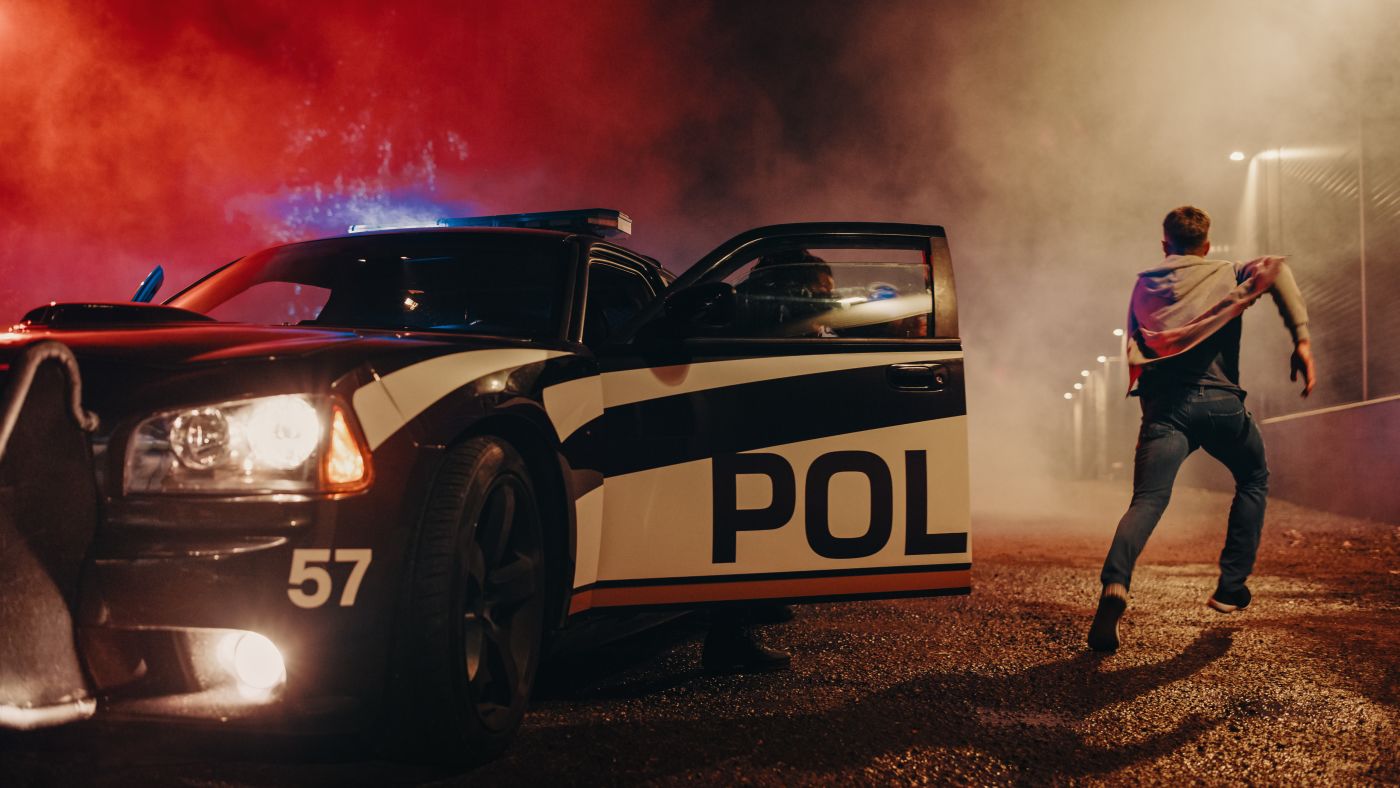
Being charged with resisting arrest can be a stressful and confusing experience. Whether the arrest was lawful or not, these charges can carry serious consequences and complicate your legal situation. In Colorado, resisting arrest is considered a serious criminal offense that can have a lasting impact on your freedom, record, and future.
While each case is unique, this guide provides a solid overview of what to expect and how criminal defense may apply to your specific situation. At The Leier Law Office LLC, in Fort Collins, Colorado, we’re committed to helping individuals fight resisting arrest charges with strategy and dedicated legal representation.
What Is Resisting Arrest in Colorado?
Resisting Arrest is a misdemeanor offense defined in C.R.S. 18-8-103.
(1) A person commits resisting arrest if he knowingly prevents or attempts to prevent a peace officer, acting under color of his official authority, from effecting an arrest of the actor or another, by:
(a) Using or threatening to use physical force or violence against the peace officer or another; or
(b) Using any other means which creates a substantial risk of causing bodily injury to the peace officer or another.
How Prosecutors Build a Resisting Arrest Case
To convict someone of resisting arrest, the prosecution must prove several elements beyond a reasonable doubt. These elements help shape how the defense will respond.
The main elements prosecutors must prove include:
The Defendant Knew or Should Have Known the Person Was a Peace Officer
The Officer Was Performing Their Official Duties
The Defendant Knowingly Used or Threatened Physical Force to Prevent the Arrest
The Arrest Was Being Made Under Color of Law (Even if It Was Later Determined to Be Unlawful)
Even if the arrest itself turns out to be illegal, that alone isn't a valid defense to a resisting arrest charge in Colorado. This makes the legal strategy especially important.
Courts in Colorado have held that individuals must submit to arrest—even if they believe it's unlawful—and challenge it later through the legal system. Because of this, resisting arrest cases often turn on the specific actions taken during the arrest, rather than whether the arrest was justified in the first place.
Common Scenarios That Lead to Resisting Arrest Charges
Resisting arrest charges often arise during situations where emotions run high. Sometimes people don't realize that their actions could be seen as resisting.
Typical scenarios include:
Pulling Away From Handcuffs or Tensing Up During an Arrest
Verbally Threatening the Officer or Making Aggressive Movements
Physically Struggling With the Officer or Attempting to Flee
Involvement in a Protest Where Physical Resistance Occurs
Being Intoxicated and Not Following Instructions Clearly
In many cases, the line between resisting arrest and simply reacting out of confusion or fear can get blurry. That’s where criminal defense strategies come into play.
The Legal Consequences of Resisting Arrest in Colorado
Resisting arrest in Colorado is typically charged as a Class 2 misdemeanor. While that might sound minor, it can still carry significant penalties, especially if it’s not your first offense.
Potential consequences include:
Up to 120 Days in Jail
Fines up to $750
Probation and Community Service
A Permanent Criminal Record
Impact on Future Employment or Housing Opportunities
If the alleged resistance caused injury to the officer or others, the consequences may be more severe, and additional charges like assault could be added. For more information about these potential consequences, don't hesitate to get in touch with our attorney, Kent J. Leier.
Defense Strategies
Once you're facing a charge, the question becomes: what can you do about it? This is where a solid criminal defense becomes critical. Defense strategies will depend on the facts of the case, the conduct of the arresting officers, and any available evidence.
Common Criminal Defense Strategies Against Resisting Arrest Charges
Every case is different, but there are several strategies that can be used to challenge a resisting arrest charge. A good criminal defense attorney will tailor the strategy to the facts and circumstances of the case.
Strategies a defense attorney may consider include:
Lack of knowledge: Arguing that the defendant didn’t knowingly resist. For example, if someone was in pain or panicked, their actions may not have been knowingly made.
Unlawful use of force by the officer: Showing that the officer used excessive or unreasonable force, prompting a defensive reaction.
Mistaken identity: Arguing that the officer arrested the wrong person, and the defendant had no idea why they were being detained.
Insufficient evidence: Challenging the prosecution’s version of events if there's a lack of bodycam footage or witness statements.
Witness testimony: Calling on third parties to provide their version of events, which may conflict with the officer’s report.
Medical conditions or mental health issues: Presenting evidence that a medical issue affected the defendant’s behavior during the arrest.
Each of these strategies can shift the focus away from guilt and toward a broader understanding of what happened during the arrest.
Bodycam and Surveillance Footage
Video footage is often central to a resisting arrest case. In many situations, body-worn cameras or surveillance videos from nearby businesses or homes can provide a clearer picture of what happened.
Video evidence can support a defense by showing:
The defendant did not act aggressively.
The officer escalated the situation unnecessarily.
There was confusion or a lack of communication during the arrest.
The arrest involved multiple officers using excessive force.
Criminal defense attorneys will usually try to obtain any available footage early in the process to begin building a case.
Moving From Evidence to Trial Preparation
Once the defense has collected all available evidence—including police reports, video, witness statements, and medical records—the next step is preparing for trial or negotiating with the prosecution. Many resisting arrest charges are resolved through plea bargains, especially when the evidence is weak or there's room for reasonable doubt.
A skilled criminal defense lawyer will look at the strength of the case and advise the client whether to fight the charge at trial or try to reduce the charge or penalties through negotiation.
How a Criminal Defense Attorney Can Help
Facing a resisting arrest charge alone can lead to poor decisions or unnecessary consequences. That’s why getting legal representation matters.
Here are some ways a criminal defense attorney can help:
Review the arrest for constitutional violations or procedural errors
Request discovery, including all officer reports and video footage
File motions to suppress evidence if rights were violated
Negotiate with the district attorney to reduce or dismiss charges
Represent you in court and present a solid defense before a judge or jury
Criminal defense isn't just about fighting charges—it's about protecting your rights and making sure you're treated fairly at every step.
Reach Out Today
Resisting arrest charges can carry real consequences in Colorado. Even if the arrest felt unfair or chaotic, how you respond legally matters even more. With a strong criminal defense, it's possible to reduce charges, avoid jail time, or even get the case dismissed entirely. We’re proud to serve Fort Collins, Colorado, and the surrounding areas of Loveland, Greeley, Windsor, and Evans. Contact us today for more information.



